I dream most often of my grandmother. But these days, the image of my grandfather’s study keeps visiting me
I was not particularly close to my grandfather (paternal) although I was his primary caregiver for the last three years of his life. My dreams, somehow unusually vivid these past months, are often about my grandmother. For the past couple of days though, I find an image of my grandfather’s study returning to me. Not disturbingly, or restlessly. Only that my mind keeps returning to it.
I see him where he always sat at the head of an XL-sized table, “studying” as he would say, “porha shuno”–the Bengali word for serious study. It was never just reading for him. How serious he was, how scholarly! Never talking down to me when I was a child, never simplifying complexities, or clarifying whether the king or princess or ghost was good or bad (my question was always about character). ‘You have to find it out for yourself,’ he would say.
Yet he made time to speak to everyone who dropped in at the enormous, cavernous apartment built by Calcutta’s Armenian community (and at one time, there were so many) where he lived for five decades. He could speak with anyone, his affectionate manner getting them to open up in a way my journalist self has never managed. ‘Where is your desh? Who lives at home? You must miss them a lot here?’
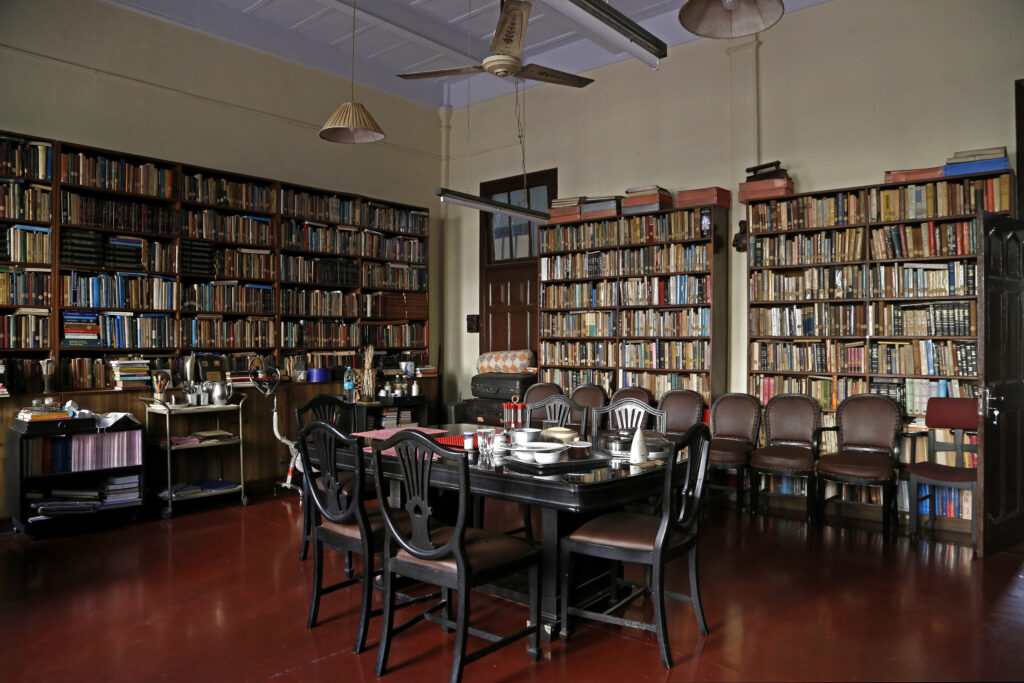
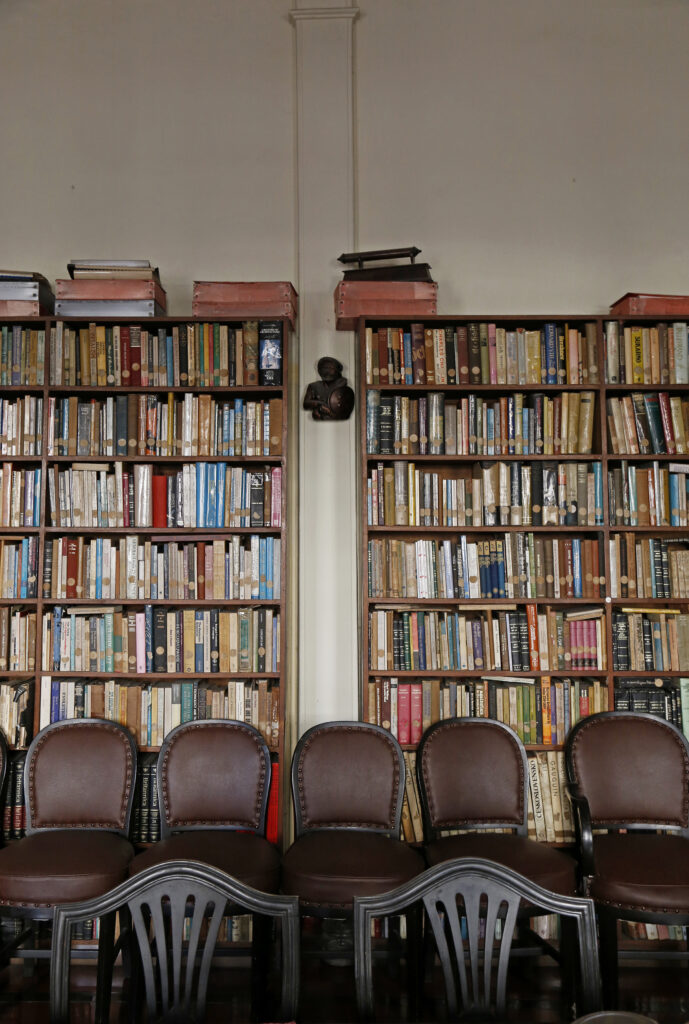
The very last sentence he spoke with me was in July 2019. “Doesn’t that look like Darwin?’ he asked me. It was a print of a woodcut by Nandalal Bose in Tagore’s Sahaj Path on our walls–an old man with a bald head and a long beard bent over a reading table. By that time, he never made any conversation on his own, he was already six years into his descent into dementia and depression.
Startled, I googled Charles Darwin. A bald man with a billowy white beard.
‘Yes, he does,’ I told him. But by then, his mind was somewhere else.
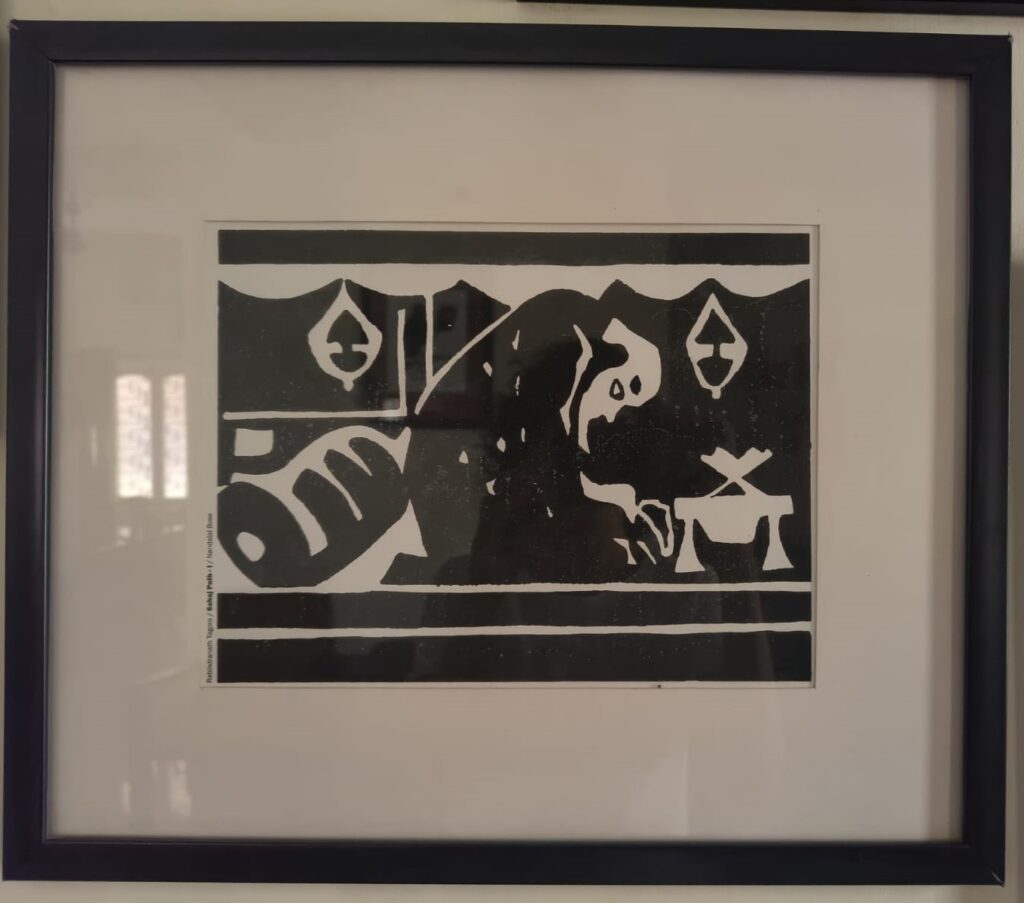
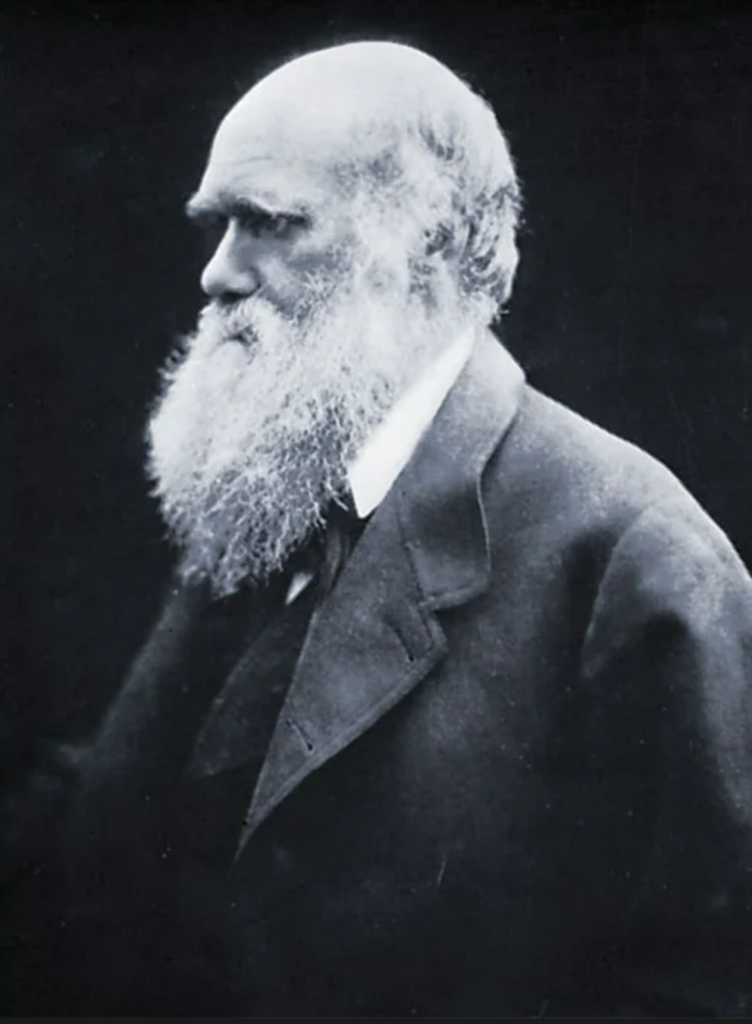
“How strange and beautiful—some neural connection suddenly clicking into place,” a friend told me when I shared the incident with them. A lonely spark in a dark room where the wiring has long gone.
In the past few months, I have met an unusually large number of people in my hermit crab life. People associated with books, the so-called life of the mind. There are not many like him today, I realise now. At best a couple or more. (Have I actually been thinking about him the past few months without realising it?)
Of course, he was proud too. He would never walk anywhere even if it was two minutes away, asking the car to be kept ready. Never ate out in a restaurant. Too many people would come up to speak to him, he said. He gave me career advice that I now know for certain was not right for me. But I do carry one thing that he told me: “Money is important, but not money alone.”
In the last full-fledged conversation I had with him, I had asked him why he no longer wanted to live alone, “I have said and believed in many things in my life based on reason. But now, I am experiencing them emotionally… I see I am not that different from most people.”
Most people I know cannot accept the diminishments of aging. “Don’t make the mistake of asking ‘how are you?’” he would say. “I can go on and on about my joints and bones and digestion and heaviness in the head.” It was this new humility that made it easier for me to care for him.
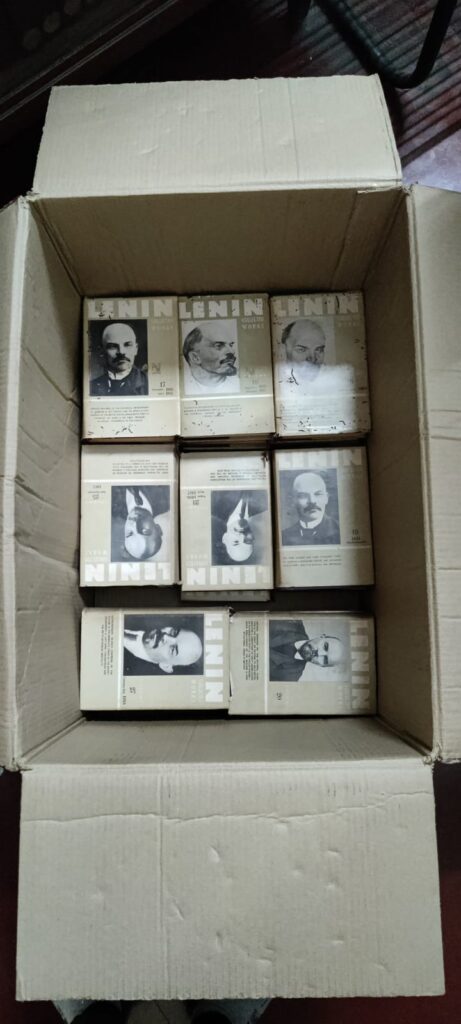

But something there is that makes me recall a specific image–the complete works of Lenin, packed into a box. Handsome volumes in grey, white and black. I remember taking photos because I thought they looked so good. On my phone, the date of the photo is 11 April 2022. That was the day I supervised the packing of his library for the good people at Ashoka university who took it all.
Precisely two years ago to this week. Naturally, this is not an anniversary-category day: why would anyone want to remember the day you gave away the thing you remember most about a family home?
Some neural connection must have sparked into place. Our emotional memory board carries the memories of the things the rational mind doesn’t mark on the calendar.
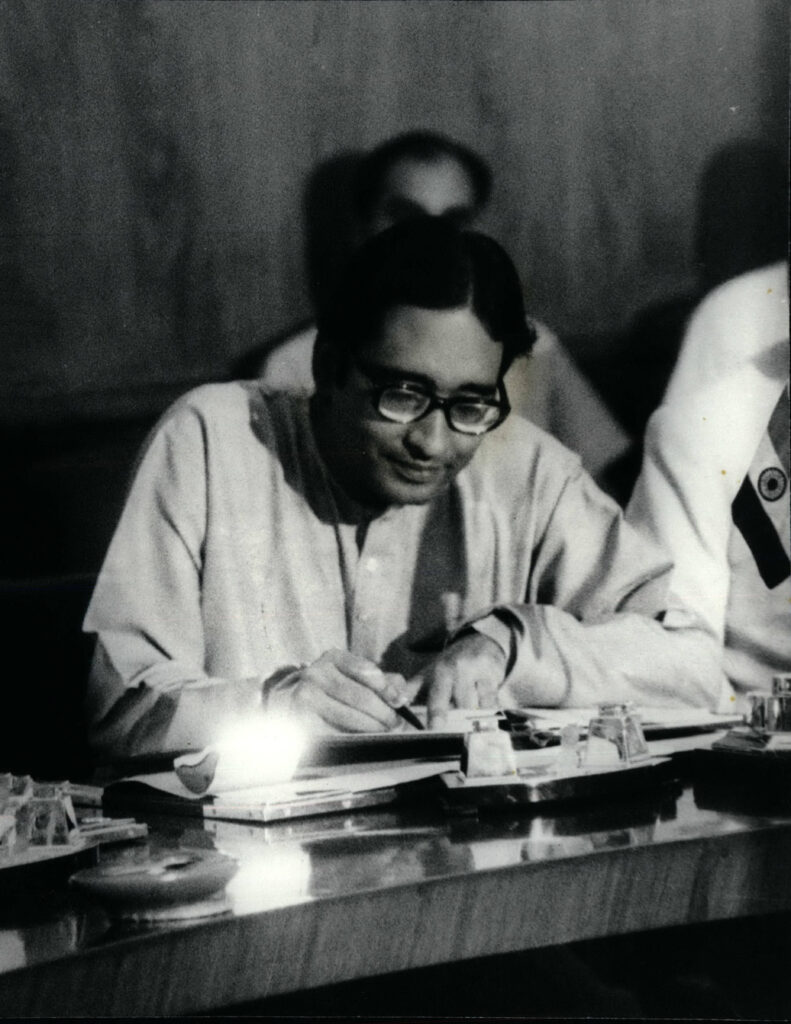
3 comments for “Once Upon a Library”